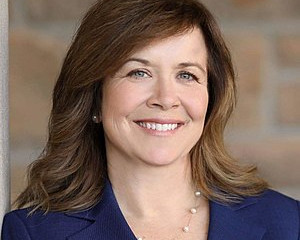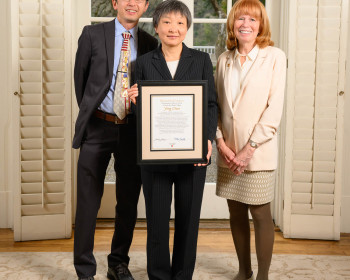SBLC Cultivates Relationship with Native Rural Entrepreneurs
Open gallery

The Small Business Legal Clinic (SBLC) of Lewis & Clark Law School has been awarded grants from The Ford Family Foundation and the United States Department of Agriculture Rural Business Program to increase outreach and direct legal services to rural communities. The program will focus on Native entrepreneurs, working with the Warms Springs and Umatilla Reservations, as well as other rural businesses.
The SBLC’s relationship with Warms Springs began last fall. Dustin Seyler, Small Business Advisor and member of the tribe, reached out to the SBLC and expressed the need for legal services and education for new business owners. The long term goal of the Warm Springs Community Action Team’s business promotion program is to reestablish a downtown business district and foster its growth and prosperity for all tribal members in Warm Springs. The SBLC presented on entity selection and trademarks in the fall of 2018 and the spring of 2019.
Later in the fall, Raven Manta, a small business advisor from the Umatilla Reservation, requested legal support for businesses run by tribal members after hearing about the SBLC’s work with the Warms Springs Reservation. The SBLC gave a presentation in Umatilla in the spring of 2019 and served the first Umatilla tribal member through the SBLC Intern Program in the summer of 2019.
Kuranda Kasatka ’21 was the SBLC’s summer intern that worked with the Umatilla client on intellectual property protection and business registration. “Working at the SBLC over the summer gave me the perfect introductory step to becoming a practicing business attorney,” she stated. “As a student at the SBLC, we worked one-on-one with clients in a supportive work environment to tackle real legal questions. For me, exploring the human element of lawyering is of the utmost importance and getting to work on a subject that interested me took a backseat, but I got the best of both worlds. The whole experience breathed life into my law school experience and clarified just why I enrolled in the first place.”
Although excited to work with rural tribal communities, the SBLC was already beyond capacity working with businesses in the Portland area. There was also a knowledge gap, as the SBLC faced questions regarding the laws and regulations that were unique to the reservations. The lack of capacity and distance slowed the SBLC’s ability to provide additional one-on-one meetings with attorneys that are the most valuable service provided by the SBLC. In an effort to bring additional legal expertise and capacity to the SBLC, the SBLC appealed to the Ford Family Foundation and USDA for seed money to develop a program focused on Native and rural entrepreneurs and hire legal staff with specific cultural competency.
The Rural Outreach Program begins in October with new staff attorney, Shanna Knight. The program will serve 130 entrepreneurs over a two- year period. SBLC Executive Director, Julieanna Elegant commented; “We are excited to be able to travel to rural areas and provide direct legal services. Creating strong legal foundations for a small business increases economic opportunities and empowers communities.” Last year, 90% of the operational SBLC businesses were still in business a year later, and more than a third of the businesses added employees.
Law Communications is located in room 304 of Legal Research Center (LRC) on the law Campus.
MSC: 51
email jasbury@lclark.edu
voice 503-768-6605
Cell: 626-676-7923
Assistant Dean,
Communications and External Relations, Law School
Judy Asbury
Law Communications
Lewis & Clark Law School
10101 S. Terwilliger Boulevard MSC 51
Portland OR 97219

